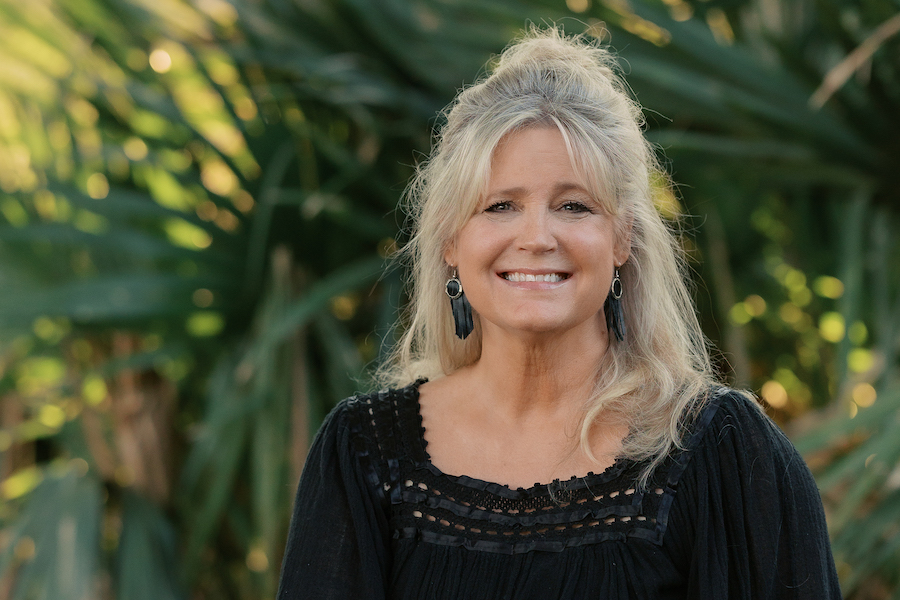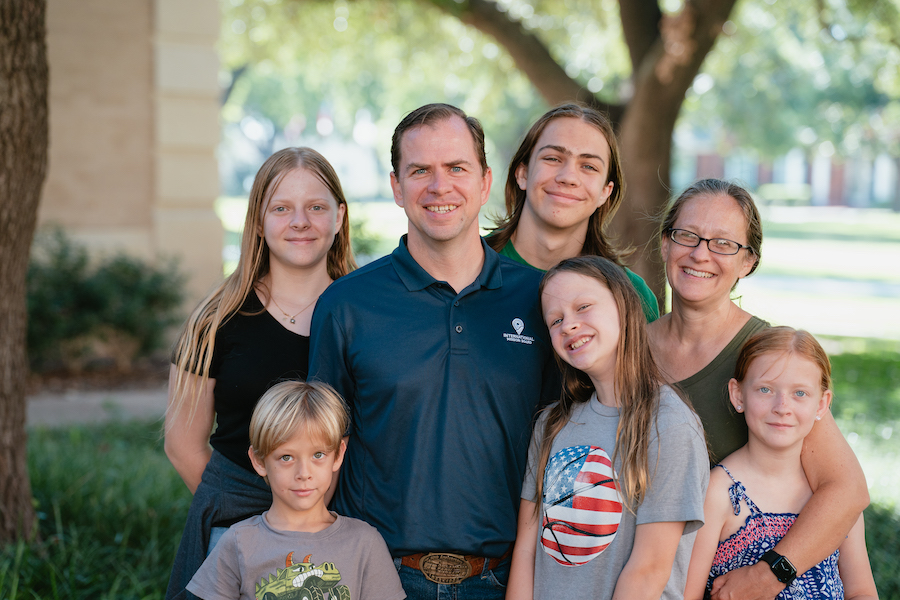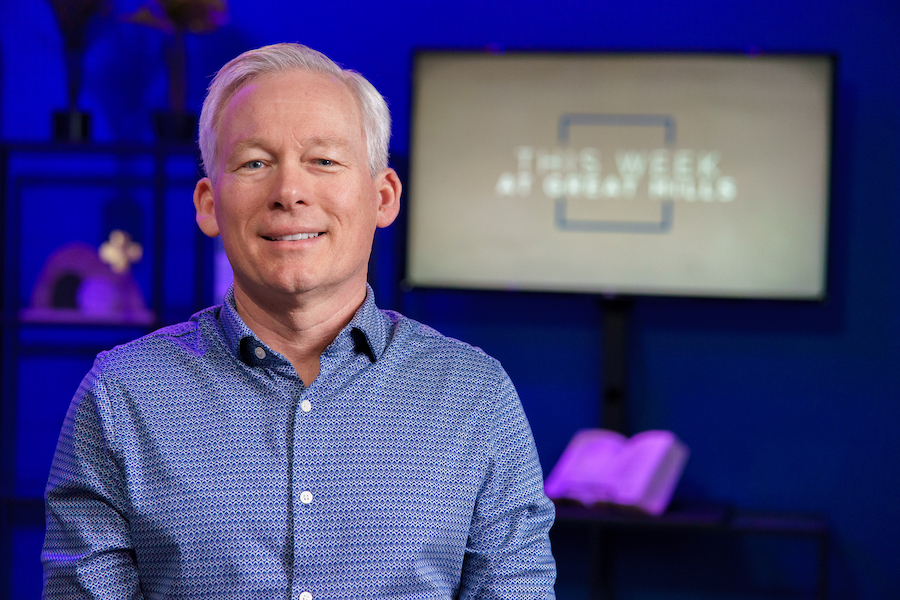‘Missions Guy’ Jim Walters seeks to bring the Gospel to people in multi-housing communities
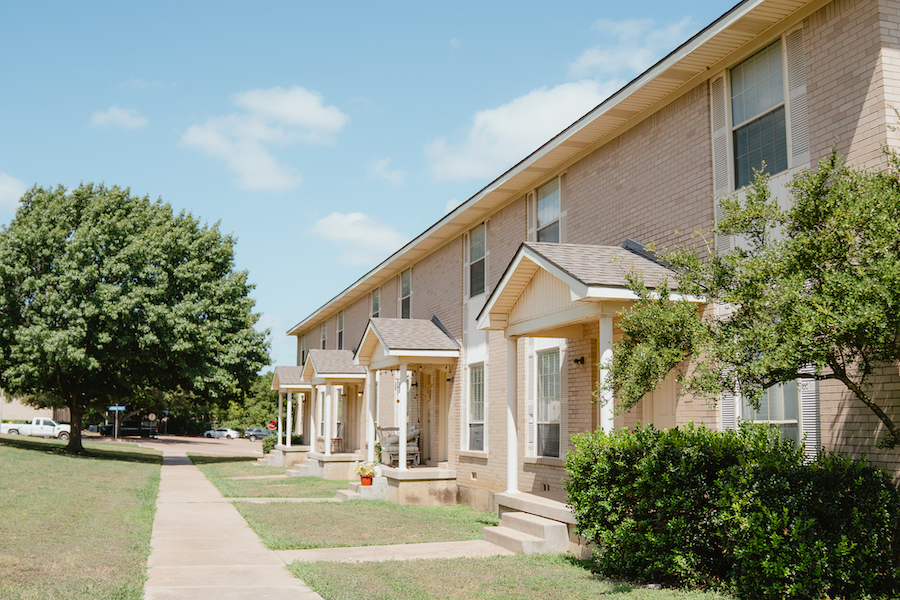
A movement that began more than 30 years ago is making a comeback, this time with churches and organizations taking to the streets of their own cities to fulfill the Great Commission.
Multi-housing ministry seeks to bring the Gospel to those living in multi-housing communities. According to the National Multi-Family Housing Council, 37 percent of U.S. residents live in multi-housing communities, whether it be apartment buildings or town homes, mobile home communities, college dorms, senior housing, and more.
Although churches did multi-housing ministry in the 1980s and 1990s, “we quit doing it for 20 years. We’re doing it again,” said Jim Walters, a Southwestern Baptist Theological Seminary alumnus (’88) and co-founder and board chair of Mission 98, a multi-housing ministry network.
“So maybe it’s God’s second roundup right now,” he added with a grin.
Walters, a jovial man with a megawatt smile and a singular purpose of spreading the
Gospel, said the name “Mission 98” came from a survey taken in an affordable housing community in Dallas.
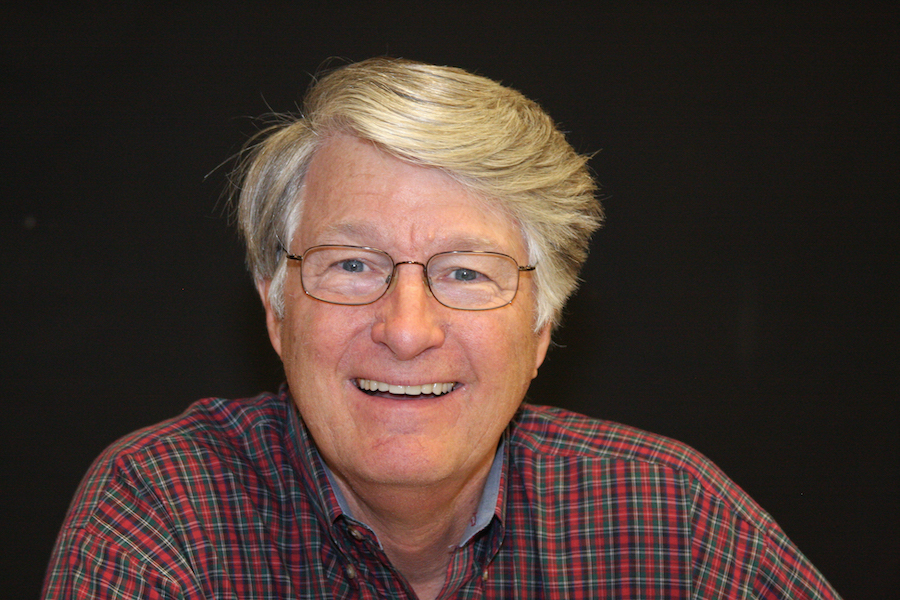
Southwestern alumnus Jim Walters co-founded Mission 98, a multi-housing ministry network.
He was serving as minister of missions for Casa View Baptist Church when a woman told him of the drugs and crime at her apartment building and asked for help. As part of its multi-housing ministry, Walters said, the church rented an apartment in the building and moved two college students into it. Walters and the two students knocked on every one of the 50 apartment doors in that complex and asked the residents about themselves and their needs.
Then they asked the residents if they could name a local church with which they had some connection. As many as 98 percent of the residents could not name a church, he said. Years later when he and a colleague formed a multi-housing ministry in Colorado, they chose the name “Mission 98.”
An unlikely missionary
As a child growing up in Austin, Walters’ own family did not attend church services.
“We just didn’t go to church,” he said. “My spiritual training was the Boy Scouts.”
He still can recite the oath, but says while it talks about doing your duty to God and country, “They don’t really tell you much about God.”
He did believe in God, though, and country, and felt a duty to both. After earning a Bachelor of Business Administration degree from the University of Texas at Austin in 1971, Walters joined the U.S. Air Force.
Trained as a fighter pilot, he was ready to be deployed when the Vietnam War ended. This led to a year of boredom and eventual questions concerning why he was there and what life is all about.
“And when anybody asks those questions,” he said, “Jesus has a way of showing up.”
Walters said he spoke with a fellow fighter pilot who was a believer, “and he told me I needed Jesus, but he didn’t tell me how to find Jesus.” He went to the base chapel for a Sunday morning service, but didn’t really get any answers from the sermon, he said.
As he walked out of the chapel into the foyer, he spotted a table with a stack of books on it. Picking one up, he saw that it was a Gideon Bible.
“And it says there’s one verse that … encapsulates the central message of the Bible,” he said. Then, he said, “I read John 3:16 for the first time in my life.”
Walters said he took that Bible to a Bible study led by the man who had told him he needed Jesus. About 10 other men were in the group, he noted, adding that the leader announced they were studying Ephesians 2.
“Everybody in the room … quit talking and they looked down like it was a pop quiz or something and just stared at their book,” Walters recalled. He later found out that Ephesians 2 was code for “a lost guy has walked into the room,” he explained, adding that the passage “says you’re a dead man walking in your sins,” but are saved by grace through faith in Christ.
“I left that Bible study and made a beeline to my apartment and stood next to my bunk bed and told God I needed the grace of God; I needed that,” he said. “‘I need that grace, God.’ I’ll tell you what: He showed up. I met Him.”
He still has that Gideon Bible, its pages now held together with duct tape.
Walters got involved with a Christian group in the fighter pilot squadron and said those men “taught me to read the Bible for myself every day, to pray before I did anything, and to tithe.” He spent six weeks with these men before transferring out, “and it was amazing, the transformation in my life. I got back to Lubbock, Texas, looking for a church.”
He began attending Calvary Baptist in Lubbock, which he described as a small congregation made up of “Bible-believin’, mission-doin’, sin-hatin’, fire-breathin’ people … that were happy also. That was the other stunning thing. I did not know that Baptists were happy. I knew they didn’t drink, didn’t dance, didn’t have any fun,” he said with a laugh.
Walters resigned his Air Force commission in 1979 and considered attending Southwestern, “But I was still single, and it didn’t seem like I could be the pastor of a church if I wasn’t married,” he said.
At that time, Walters had no intention of tying the knot.
“I thought at the time I was gonna be a ‘bachelor to the Rapture.’ That was my motto,” he said with a grin.
He began working as a pilot and travel arrangements coordinator for a missions organization where he met Connie, who also worked for the organization.
“We fell in love and got married in short order and suddenly had two kids,” he said.
Walters was flying preachers from Lubbock to other churches in Texas where they would preach and enlist people to go on mission trips. Eventually, he said, they trained him to preach and enlist people to go on mission trips, even though he had no background in ministry.
“But some friend said to me, ‘Jim, if you’re going to be in ministry, you need to sharpen your tools,’” he said. He applied to Southwestern, was accepted, and began commuting from his Dallas home to the Fort Worth campus four days a week.
“Boy, [Southwestern] sharpened my tools,” Walters said. “I had F.B. Huey for Old Testament, Roy Fish for Evangelism, James Eaves [for Evangelism]. I had wonderful professors. I was drinking it in.”
One class stood out, however.
“The class that moved me … was ‘Strategies for Starting Churches,’” he said, adding the course was taught by Daniel Sanchez, current distinguished professor emeritus of missions. “That class changed my life.”
After earning his Master of Divinity from Southwestern in 1988, Walters was “totally ready to go out and help sponsor church plants,” and he was hired by Casa View Baptist Church to be its minister of missions.
“The plan was to be a missions pastor at a Texas Baptist church that had a partnership with the Home Mission Board [now the North American Mission Board],” he said. “I was appointed by the Home Mission Board to be a minister of missions at a local church to plant churches out of that church and do apartment ministry. It was part of it.”
Walters steadfastly refers to himself as “a missions guy” and notes that when people would tell him he should get his own church and preach from the pulpit every Sunday, his reply was always, “‘No, I would never join any church that would have me as the pastor,’” he quipped.
In 1995, Walters moved to Colorado to be the “missions guy” at Bear Valley Baptist Church in Denver. Five years later, the church’s lead pastor had two heart attacks and had to be placed on medical disability.
“So the head deacon turned to me and said, ‘You’re now the acting pastor’ – a phrase I’d never heard before or since,” Walters said. When he asked what the deacon wanted hm to do, he was told, “‘Act like you’re the pastor,’” he said with a laugh.
Walters said he agreed to try it, “and it worked for 16 more years.” He retired as pastor of Bear Valley Baptist Church in 2016.
Man on a mission
As Walters was nearing retirement, LuAnn Turner, a multi-housing ministry leader at the church, was trying to get other churches involved in Bear Valley Church’s multi-housing ministry. However, Walters said, to expand the scope of the work, that ministry needed to be on its own; not under one church. The two co-founded Mission 98, Inc., a nonprofit organization, which Turner served as the first executive director. Walters still serves Mission 98 as chairman of the board.
“I kinda flunked retirement,” he said. “I want to keep doing missions.”
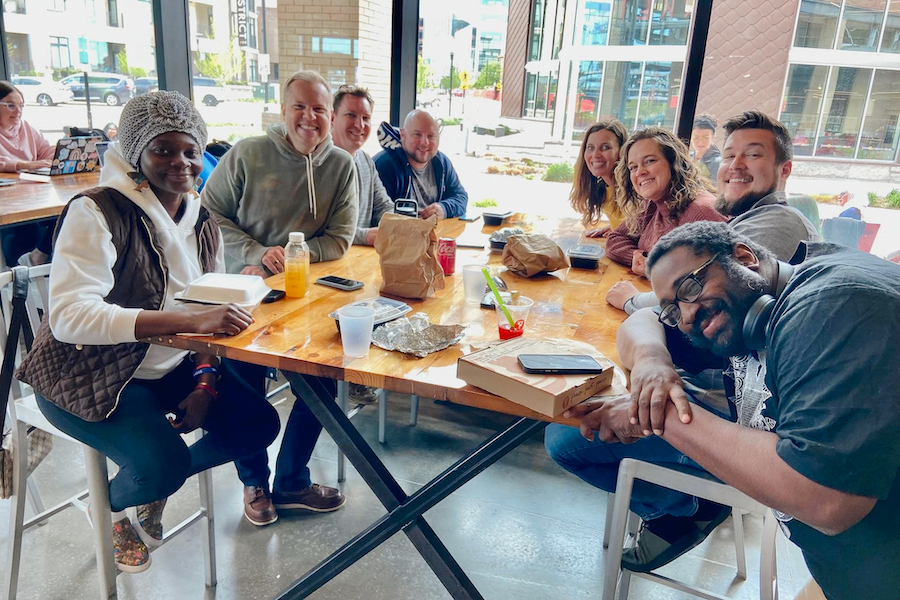
Teams form and minister to those living in multi-housing facilities.
In early 2023, Walters felt that God was moving the organization to something new – “a national community of people doing multi-housing ministry.”
The organization’s website, mission98.org, features a digital resource library with free courses, training and more, as well as the Mission 98 Community where those in the multi-housing ministry can collaborate, share stories, and ask questions. There’s even an opportunity to order a free “Multi-Housing Media Starter Kit” for anyone who wants to learn how to begin a multi-housing ministry.
Mission 98 has the backing of a foundation established by real estate investors.
“They’ll give you a free apartment in any community that they own if I can find some people … that’ll move in there and do ministry,” Walters said. The residents throw pool parties, host cookouts, and other events to help people get to know each other.
“That’s step one: Create a community,” Walters said. “The Gospel travels along those lines.”
It’s also a win for the apartment complex owners, he said, noting that when people feel a sense of community, they tend to stay longer. When a tenant re-leases an apartment, “You don’t have to find a new renter, you don’t have to do marketing, you don’t have to do a background check, it doesn’t tie up your manager for a long time … you just keep collecting the rent,” he said. Walters added that while the National Multi-Housing Council puts the retention rate for multi-housing communities at 25 percent nationwide, one investor told him the retention rate on properties he owns has gone up above 40 percent since multi-housing communities started there.
Walters said the biggest barrier to establishing multi-housing ministries is finding the workers.
“Our struggle is to find churches that are willing to send people out to minister to other people that will probably never come to their church,” he said, clarifying that people in low-income areas, or those who speak a different language or are refugees, will not attend a church where they feel out of place.
Walters believes churches should participate in multi-housing ministry because “it’s our Great Commission. We’re supposed to go and tell, go and show. We’re not supposed to sit and wait.”
Here to help
Mission 98 exists to “enlist, support, train and encourage anybody in multi-housing, even across denominational lines,” he said, though he added, “I’ll tell you, without bragging, it’s the Baptists that led the way. We are by far the most aggressive church planters and multi-housing ministry people on the planet.”
In fact, most of the churches with which Mission 98 works are Southern Baptist churches pastored by SWBTS graduates, he said, noting First Baptist Amarillo, First Baptist San Antonio, Champion Forest in Houston, and First Baptist Houston among others.
“We are still seeking and finding more of them, all isolated, so we are becoming the association, or network, to encourage and support them,” he said.
Mission 98 also is working with Cru (formerly Campus Crusade) to support Apartment Life, a Dallas-based multi-housing organization founded by SWBTS graduate Stan Dobbs (’97), who continues to serve on the organization’s board of directors. While Apartment Life currently has 600 teams in about 40 states, Walters said, Mission 98 and Cru are working to help “double and triple” those numbers.
Many refugees and immigrants are living in multi-housing communities, so Mission 98 also works with the Diaspora Missions Collective, a collaboration of Southern Baptist organizations, to bring the Gospel to these families and individuals.
“I do bleed multi-housing [ministry] because while everyone is praying for a spiritual awakening, it won’t happen if we ignore the 37 percent of Americans who live in some kind of multi-housing community, because they are so largely un-churched,” Walters said. “The churches must come out of the buildings and move into the communities.”
